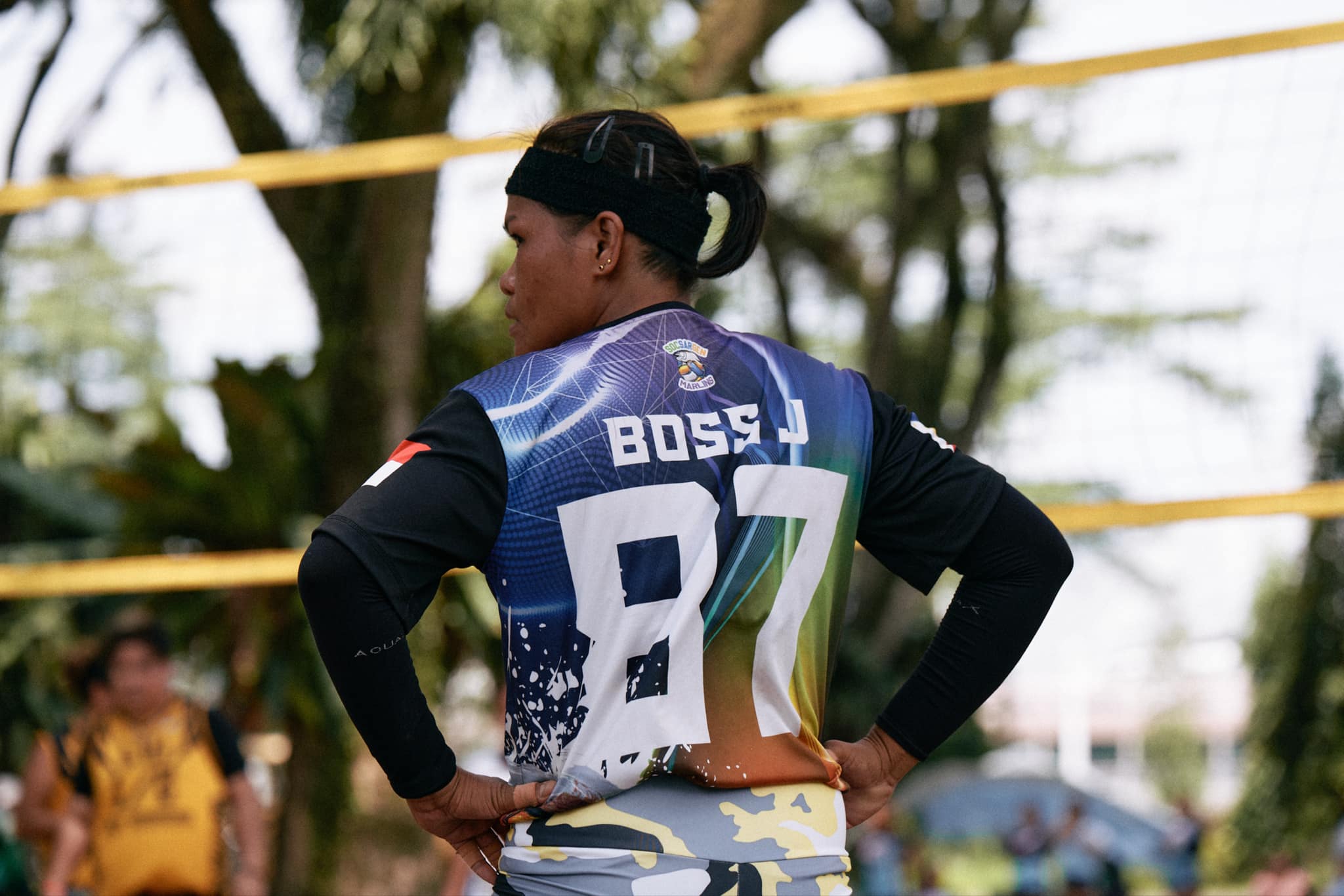When people think about sports, it is often thought of as a pastime, as a hobby, or as a way towards a professional career in whatever sport one finds themselves falling in love with at any point of their lives.
But for a group of domestic helpers in Singapore – most of whom are Overseas Filipino Workers (OFWs) – sport has become something more, something that is life-changing.
A common practice among employers of domestic helpers is that they are only given one rest day in a week, and for most of them, that day is Sunday.
The short film and book titled “On Sundays, We Play” explores the story of Filipino domestic helpers in Singapore that found community and purpose through organizing one-day volleyball leagues during their day off in a largely unused plot of land in Kallang, where the country’s old airport used to stand.
More than being their respite from a week-long worth of work, these particular group of OFWs see volleyball as a way to reclaim their humanity on their off day. They usually endure dehumanizing practices in their employment – that is, they are confined to the spaces where they work on from Mondays to Saturdays.
Fil-Australian sociologist and On Sundays, We Play producer Kristine Aquino described the phenomenon that she saw among the domestic helpers as “Transformative Leisure.” While for most people, spending their time on their day off was simply physical rest, playing sports is much more significant for these women.
“When we say transformative leisure, it's this kind of transformation through leisure, right? Through this activity (volleyball)… It's something that is generating a kind of new way of being. So, it's really something a bit more profound,” she told One Sports during the film screening and book launch at Ateneo de Manila University last October 4.
“For these women, as I said before, it's like they are so suppressed in their everyday lives, but when they [play], through this activity of the sport itself, but [also] the community as well, and just the social world… You know, the color, the sound, the uniforms, the ability to just be able to scream, and hit [the ball], it's all these very bodies being in this space that generates this force of life, that allows for this change.”
Because of their visa status in Singapore as migrant workers, most – if not all – OFWs have little to no access to leisure venues and places where they can enjoy their rest day. But as the government has allowed them to use the lot in Kallang, the domestic helpers have found a place to enjoy themselves away from the prying eyes of their bosses.

Through their volleyball games, the OFWs are able to embrace their identity outside of work – with most of them able to express frustrations, sexuality, and everything in between from how they dress to how they spike the ball.
“[It’s] something that happens that is not just symbolic, but something they feel. They feel different [when they play], you know, and because they're able to express their sexuality… Just be. To kind of exit and step out of that role of subserviency,” Aquino said.
From a community standpoint, it has also created an undeniable bond among the OFWs and their fellow migrant workers, as evidenced by their camaraderie during their games and activities.
Adding to that, the games have also been organized as part of charity tournaments at times, with a beneficiary receiving the proceeds of the game – for the most part, it’s for a sick relative back home in the Philippines, or for alms when a relative of a community member dies.
Faced with harsh realities as migrant workers, the Filipinos have found unity through sport. While there is still much left to be desired, especially from policy makers in Singapore on how the workers are treated, the patented Philippine resiliency has allowed these particular OFWs to thrive.
“In Singapore, with the visa system, it's highly [unlikely], they will never get [citizenship], right? And so I think that's what's unique, and that's what needs attention, is they are among the most exploited and vulnerable in the Filipino diaspora,” said Aquino.
“Through sport, it's been remarkable to see how they have tried to claim through, perhaps, a taken for granted, activity, and have been able to transform every Sunday… Even if it's just Sunday, you know that they're able to transform themselves.”
But their space may be compromised in the near future as the film also ends with a note that the lot in Kallang will be up for development soon.
While the government has told the migrant workers to continue using the area while they can, the development poses a threat to the reclaimed space for the OFWs.
Aquino hopes that through the film and book, people will be moved by the OFWs’ story to continue to fight for space and even more importantly, their rights as migrant workers.
“If we can build some kind of advocacy around it, and hopefully the film will show that, you know, say we [can] put pressure on the embassy or something to try to provide [a space for the migrant workers], but I think there's also the long-term goal,” said Aquino.
“Because beyond just the sport, you know, [what] we're looking at here [is] labor migrant rights, the right to the city, the right to be included,” she added.
The Fil-Aussie delved even deeper as well and spoke about the core problem of having to be separated from their families to work abroad in the first place.
“It's deeper than just the sport, it's like, you know, what puts them there in the first place is the big one for us,” she said.
“On Sundays, We Play” is displayed as an exhibit at the Ateneo Library of Women’s Writings until October 18. It was previously displayed in Singapore and in Australia, as well.
The book is also published locally by Gantala Press.